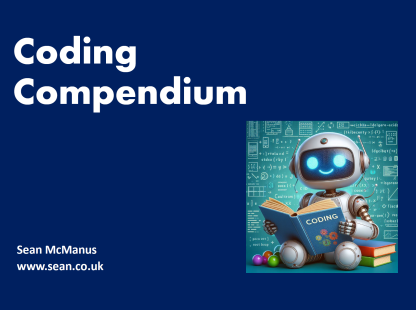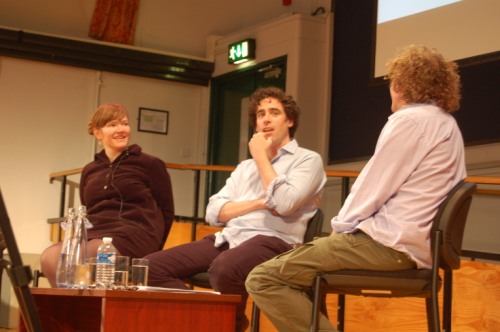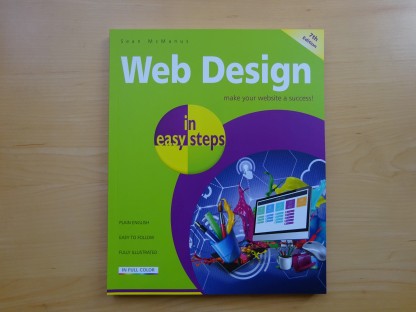
Coding Compendium
A free 100-page ebook collecting my projects and tutorials for Raspberry Pi, micro:bit, Scratch and Python. Simply join my newsletter to download it.
At the London Comedy Writers Festival 2011, Dan Mazer spoke about the importance of getting talent attached to a script. So what makes performers love your writing and want to bring it to the stage or screen?

Jessica Hynes and Stephen Mangan in discussion with Declan Lowney at the London Comedy Writers Festival 2011. Photo courtesy of Chris Jones.
The festival provided lots of opportunities for performers to speak out on this. Here's a summary of what Stephen Mangan (Green Wing, Dirk Gently, Adrian Mole) and Jessica Hynes (Spaced, Twenty Twelve) look for in a script:
Another session featured a panel of comedians, actors and writer-performers. They performed material written on the day by some of the writers there and gave feedback on it, as well as taking part in a panel discussion. Their tips included:
© Sean McManus. All rights reserved.
Visit www.sean.co.uk for free chapters from Sean's coding books (including Mission Python, Scratch Programming in Easy Steps and Coder Academy) and more!

A free 100-page ebook collecting my projects and tutorials for Raspberry Pi, micro:bit, Scratch and Python. Simply join my newsletter to download it.

Web Design in Easy Steps, now in its 7th Edition, shows you how to make effective websites that work on any device.

Power up your Microsoft Excel skills with this powerful pocket-sized book of tips that will save you time and help you learn more from your spreadsheets.

This book, now fully updated for Scratch 3, will take you from the basics of the Scratch language into the depths of its more advanced features. A great way to start programming.

Code a space adventure game in this Python programming book published by No Starch Press.

Discover how to make 3D games, create mazes, build a drum machine, make a game with cartoon animals and more!